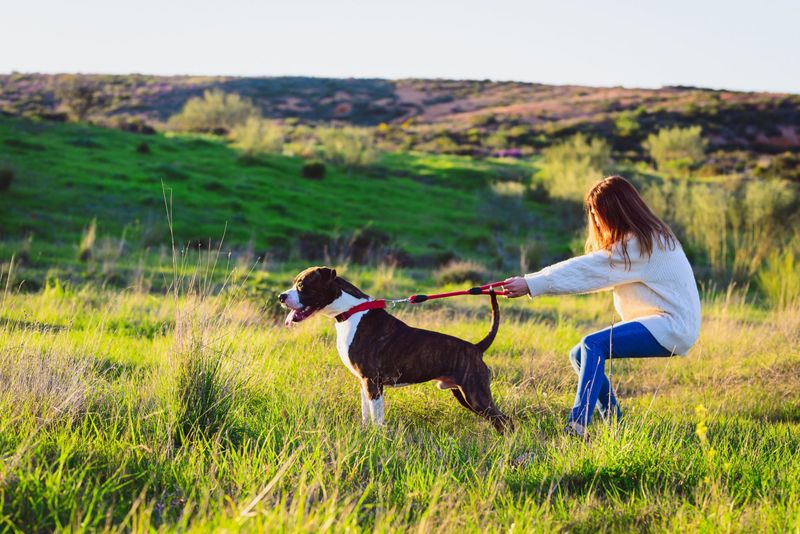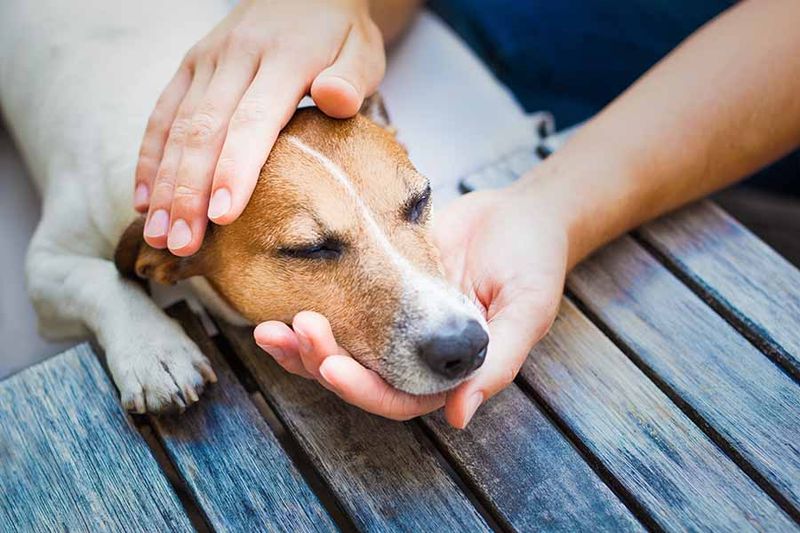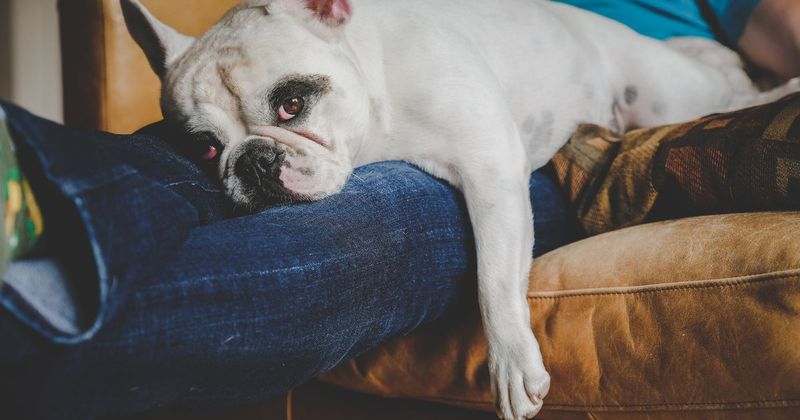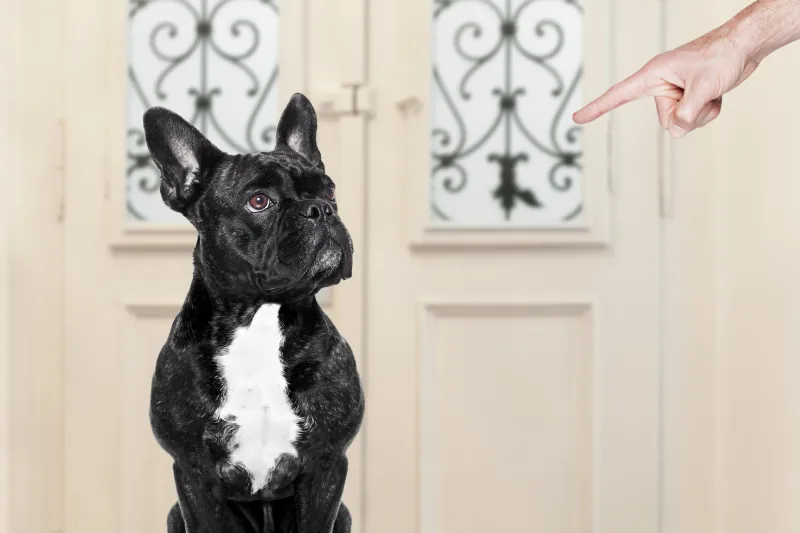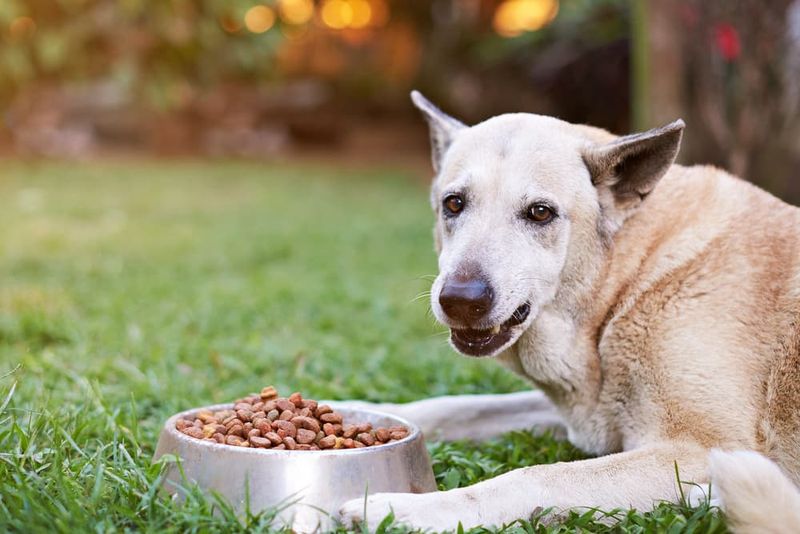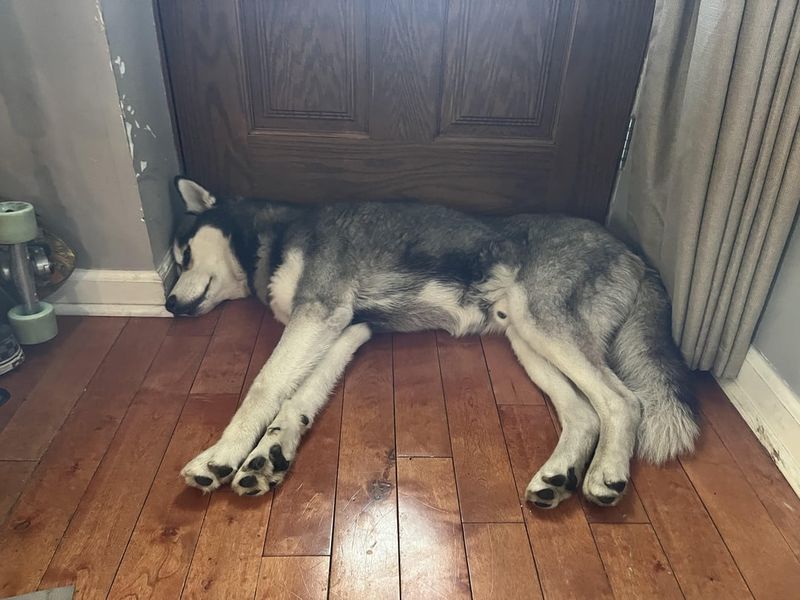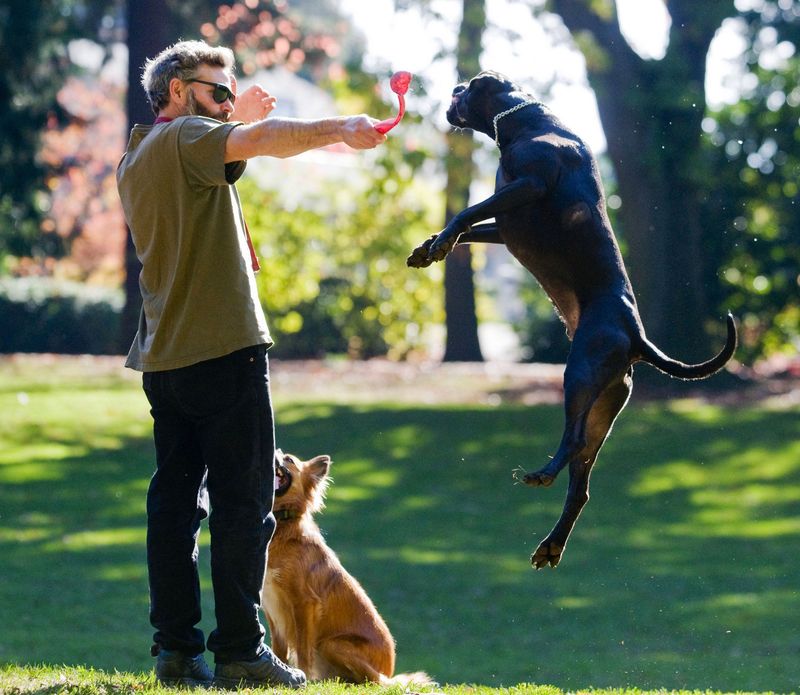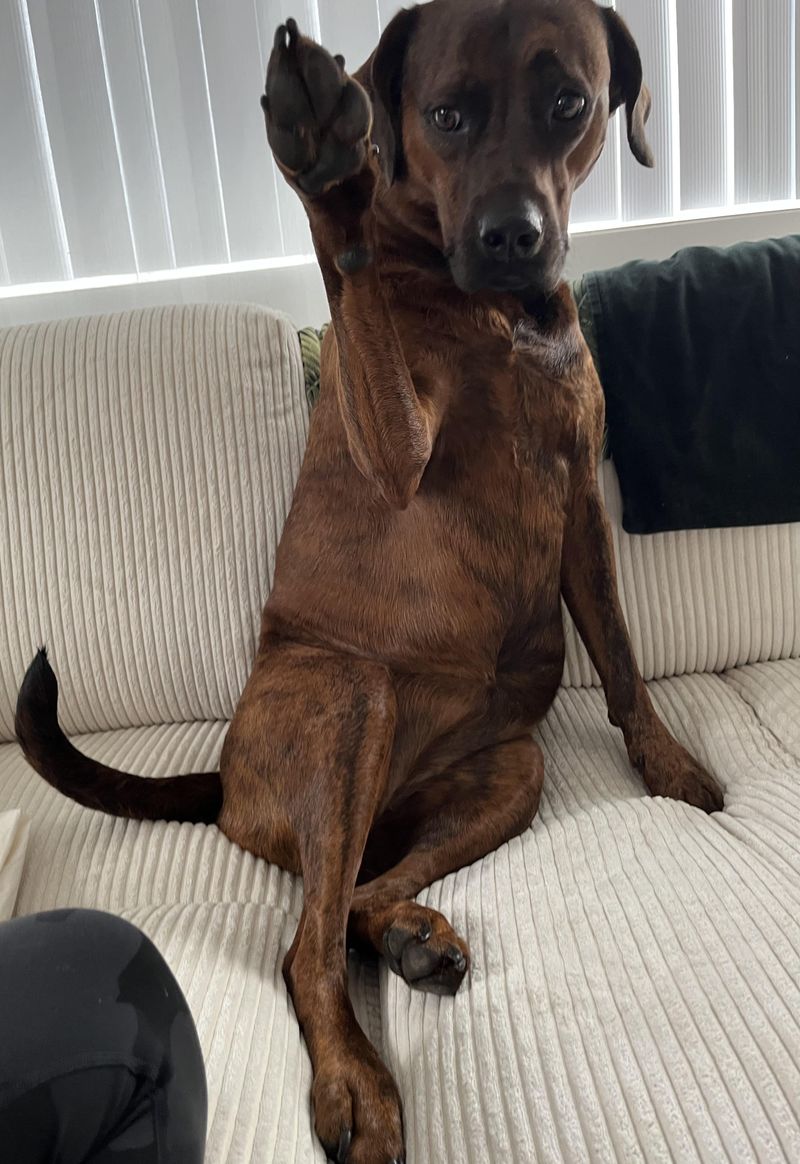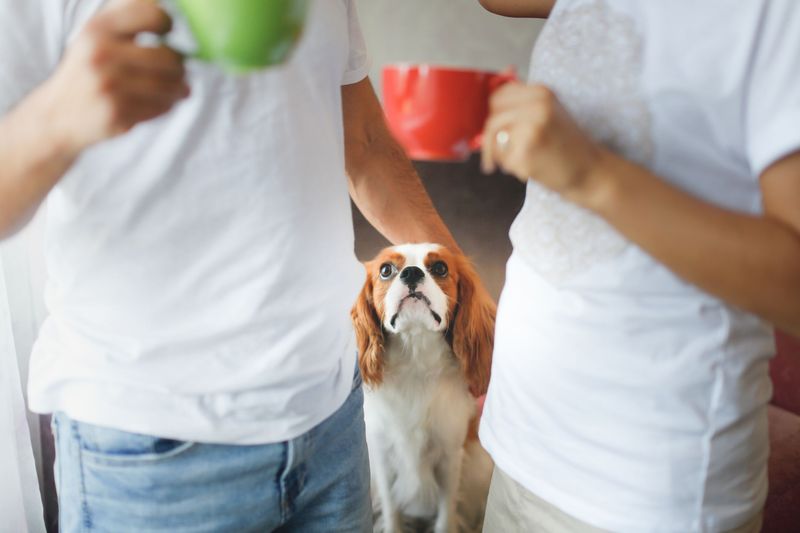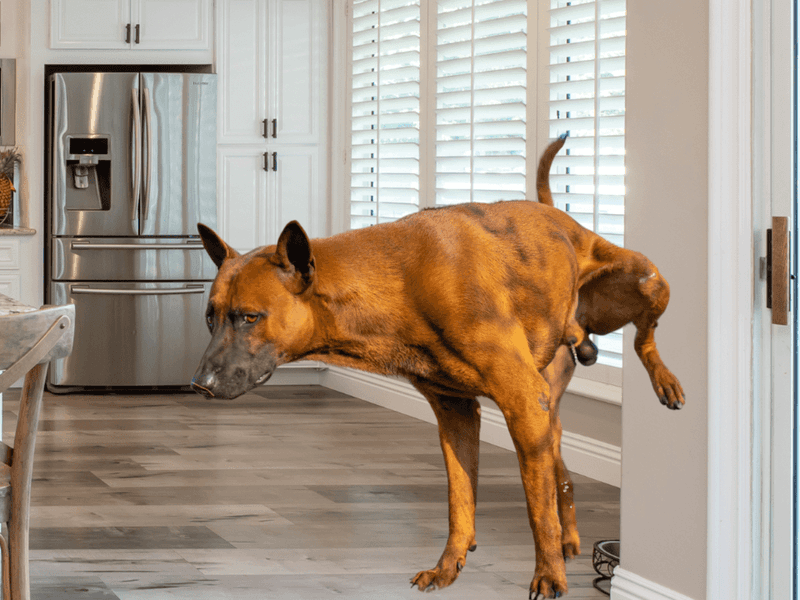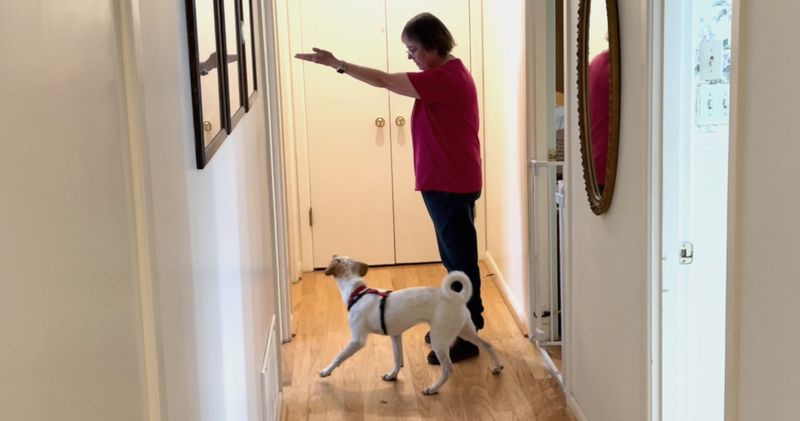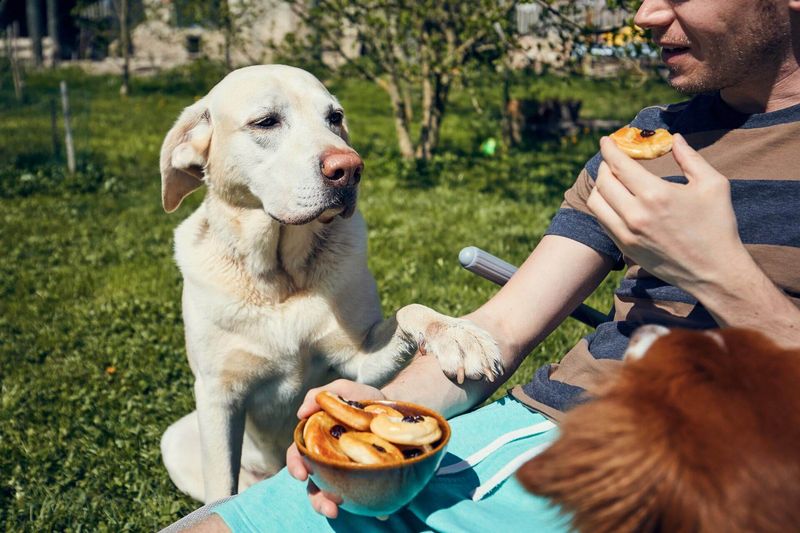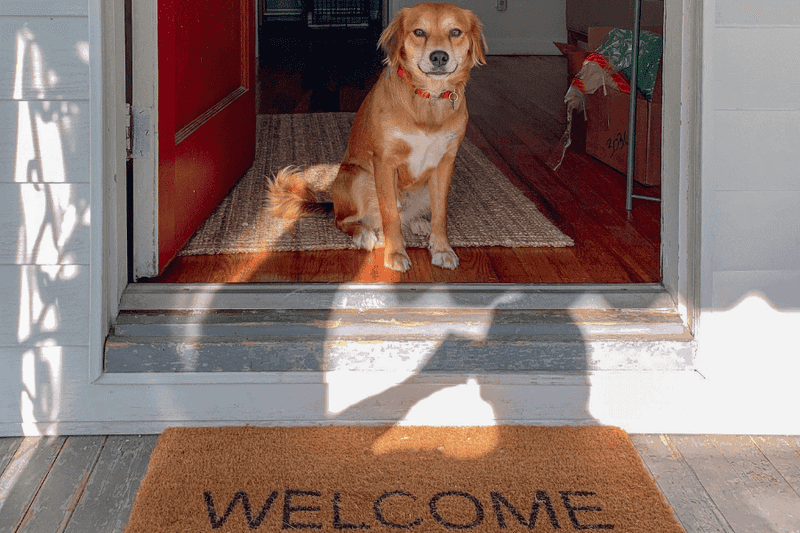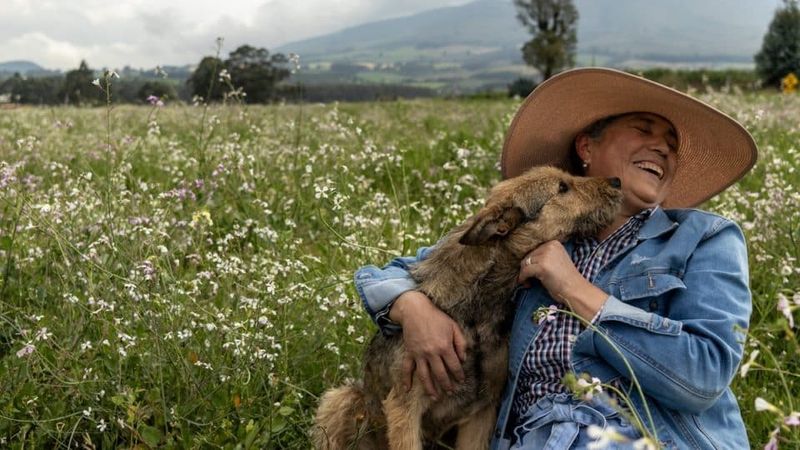16 Signs Your Dog Is Alpha and You Are Beta
Think you’re the one in charge at home? Your dog might strongly disagree. While we like to believe we’re the pack leaders, many dogs quietly flip the script—claiming the alpha role without you even noticing.
From subtle body language to bold behavior, dominant dogs have a way of setting the rules while you play catch-up. And if you’re constantly giving in, backing down, or adjusting your life around their whims, chances are they see you as the beta.
This doesn’t mean your dog is bad—it just means the balance of power needs a little reshuffling. Here are 16 telltale signs your dog thinks they’re the one wearing the crown… and you might just be their loyal subject.
1. They Walk You, Not the Other Way Around
A stroll in the park or down the street can quickly turn into a tug-of-war if your dog is the one setting the pace. While you might think they’re just enthusiastic about the outdoors, constant pulling on the leash is actually a dominance display. It’s not due to poor training, but rather a clear indication that they see themselves as the leader on your walks.
Instead of leisurely following your lead, they’re dictating the tempo and direction. This behavior showcases their control, subtly reminding you who’s in charge.
2. They Demand Attention—And You Obey
Ever find yourself dropping everything because your dog is barking or pawing at you? This isn’t just a cry for affection. When your furry friend demands attention and you promptly comply, it’s a clear signal of who’s really in charge.
This isn’t just a playful interaction—it’s a power dynamic. Your dog has learned that a bark or a whine can command your full attention. Whether it’s a paw on your knee or a nudge from their nose, these actions are rooted in their understanding of dominance.
3. They Choose Where You Sit or Sleep
Coming home to find your favorite spot on the couch occupied by a sprawled-out pooch? It might seem endearing at first, but this is classic alpha energy at play. When they claim your seat and don’t budge, it’s a demonstration of their belief that they dominate the space.
Even if you gently try to usher them aside, their reluctance to move speaks volumes. This isn’t just about comfort; it’s about control over the environment—something an alpha dog values deeply.
4. They Refuse Basic Commands
When your dog looks at you as though they’ve never heard the word “sit” in their life, it’s not always a lack of training. Ignoring basic commands like “sit” or “stay” could reveal more about their desire to maintain control than a simple misunderstanding.
Your dog might understand perfectly well, but chooses to assert their independence instead. This behavior highlights their confidence and their belief that they can decide when and if to follow instructions.
5. They Guard Food From You
Growling or stiffening when you approach their food bowl? That’s not just hunger—it’s a territorial claim. When your dog guards their food from you, it signals that they don’t perceive you as the ultimate authority when it comes to resources.
This kind of behavior is rooted in dominance, as they prioritize their own control over sharing or yielding to you. It’s a clear message that, in their eyes, the food is theirs, and they’re willing to defend it.
6. They Block Doorways or Pathways
Ever had to navigate around your dog because they’re lounging in the doorway? Standing in your way isn’t random—it’s a physical assertion of rank. When a dog blocks pathways, it’s more than just a convenient resting spot; it’s a way of showing who decides the flow of movement in the house.
By making you detour, they subtly demonstrate their control over the environment. It’s one of those silent yet powerful assertions of dominance.
7. They Initiate and End Play
When it comes to playing, who decides when it starts and ends? If it’s your dog, then they’re calling the shots. Whether they’re bringing a toy to you or walking away in the middle of playtime, they’re making it clear who’s in control.
This behavior is a strong indicator of their alpha tendencies, as they determine the terms of engagement. It’s their way of managing interactions, highlighting their role as the leader in this playful dynamic.
8. They Interrupt You for Pets
In the middle of reading or working, and suddenly there’s a paw on your knee demanding attention? If you stop and oblige every time, you’re reinforcing their belief that they outrank you. This isn’t just about craving affection—it’s a dominant behavior.
Your dog has figured out that they can interrupt you whenever they want and get what they desire. It’s a subtle yet effective way of asserting their will over your actions.
9. They Get Jealous or Pushy Around Guests
Ever noticed your dog getting a bit too close when you have visitors? Guarding you from other humans or pets is more than just being protective. It’s a territorial behavior rooted in dominance.
By inserting themselves between you and others, your dog is asserting their claim over you. This kind of possessiveness showcases their belief that they hold a higher rank in the household hierarchy.
10. They Mark Inside the House
Even if your dog is potty trained, scent marking indoors is a way of claiming control. It’s not just an accident or a slip-up; it’s a deliberate act of dominance. By marking their territory inside, they’re communicating that they’re in charge of the space.
This behavior can be a strong indicator of alpha tendencies, as it’s their method of laying claim to their environment and reinforcing their position in the pack.
11. They Refuse to Move Off Furniture
Asked your dog to move from the couch only to be met with a growl or flat-out refusal? This isn’t just about a comfy spot. When they refuse to move off furniture, it’s a boundary issue rooted in dominance.
They believe the furniture is theirs, and their reluctance to budge is a demonstration of control over the household resources. It’s a clear message that they’re not willing to yield their comfort for you.
12. They Walk Through Doors First
Who goes through the door first says a lot about the power dynamic in your household. Alphas lead, and betas follow. If your dog constantly pushes past you to be the first through a doorway, it’s a strong sign they see themselves as the leader.
This behavior is about more than just eagerness—it’s a communication of their belief in their dominant status within the pack. A leader always goes first, after all.
13. They Demand to Be Fed First
When feeding time comes around, does your dog get agitated or seem entitled? If they demand to be fed first, they’re engaging in a subtle power play. This behavior highlights their expectation to be prioritized.
When they act impatiently before their meal, it’s a demonstration of their belief in their own importance. Feeding them first can inadvertently reinforce their alpha mindset, solidifying their role as the decision-maker.
14. They Ignore Boundaries You Set
Does your dog act like household rules don’t apply to them? Jumping on beds or eating off counters are acts of defiance that reflect an alpha mindset. This behavior isn’t just about breaking rules; it’s about displaying their belief that they’re above them.
By ignoring boundaries, they reinforce their sense of autonomy and control over the household. It’s a clear message that they’re running the show.
15. They Give You the Side-Eye When Corrected
Correct your dog and get an unimpressed look back? That side-eye isn’t just sass—it might be them sizing you up. Instead of submitting, this action reflects their confidence and disbelief in your authority.
This subtle gesture is a strong indicator of their evaluative nature, as if they’re assessing whether or not your correction is even worth acknowledging. It’s a silent stand-off that speaks volumes about their alpha tendencies.
16. They Control When Interactions End
Ever notice your dog deciding when to end a cuddle or play session? If they walk away without your input, they’re deciding how things go. This autonomy in determining when interactions begin or end is a strong indicator of their alpha mindset.
By choosing when to disengage, they highlight their control over the relationship dynamic. It’s a clear declaration of their independence and their role as the leader in these interactions.

